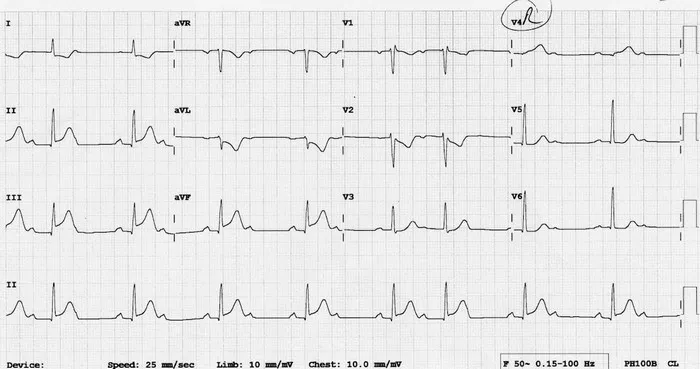Arrhythmia is a condition characterized by irregular heart rhythms, which can range from harmless to life-threatening. Many factors can contribute to the development of arrhythmias, including genetics, lifestyle choices, and underlying medical conditions. One debated aspect is the role of salt in causing arrhythmia. This article delves into the connection between salt intake and arrhythmia, exploring scientific research, expert opinions, and practical recommendations.
Understanding Arrhythmia
Arrhythmia refers to abnormal heart rhythms that can manifest as palpitations, skipped beats, or a racing heart. It can occur in various forms, such as atrial fibrillation (AFib), ventricular tachycardia, or bradycardia. Arrhythmias may be benign, causing no significant issues, or they can lead to serious complications like stroke or heart failure.
The Role of Salt in Health
Salt, or sodium chloride, is a crucial electrolyte that helps regulate fluid balance, nerve function, and muscle contractions in the body. It is found naturally in many foods and is also added to processed foods for flavor and preservation. While sodium is essential in moderate amounts, excessive salt intake has been linked to various health concerns, including high blood pressure, kidney disease, and cardiovascular problems.
see also: can you exercise with an arrhythmia
Scientific Studies on Salt and Arrhythmia
Numerous studies have investigated the relationship between salt consumption and the risk of developing arrhythmias. Some research suggests that high salt intake may contribute to atrial fibrillation, especially in individuals with existing heart conditions or hypertension. However, the exact mechanisms underlying this association are still being studied.
Expert Opinions and Guidelines
Cardiologists and healthcare professionals have differing opinions on the impact of salt on arrhythmias. While some advocate for reducing salt intake as part of a heart-healthy diet, others emphasize individualized approaches based on overall health status and medical history. Guidelines from organizations like the American Heart Association provide recommendations for sodium intake but do not specifically address salt’s role in arrhythmia development.
Practical Tips for Managing Salt Intake
For individuals concerned about arrhythmia or cardiovascular health, adopting a balanced approach to salt consumption is key. This includes:
Reading food labels and choosing lower-sodium options when possible.
Cooking meals at home using fresh ingredients and minimizing added salt.
Avoiding processed and fast foods that tend to be high in salt.
Consulting with a healthcare provider for personalized dietary advice, especially for those with heart conditions or risk factors for arrhythmias.
Conclusion
While salt intake has been linked to various health issues, including high blood pressure, the direct connection between salt and arrhythmia remains a topic of ongoing research and debate. Individuals concerned about arrhythmias should focus on overall heart-healthy habits, including a balanced diet, regular exercise, and routine medical check-ups. Consulting with a healthcare professional can provide personalized guidance on managing salt intake and reducing the risk of cardiovascular complications.
This comprehensive article explores the complex relationship between salt intake and arrhythmia, offering insights from scientific studies, expert opinions, and practical strategies for maintaining heart health.
FAQs
Can Salt Cause an Irregular Heartbeat?
Salt, or sodium, plays a significant role in regulating fluid balance and blood pressure in the body. However, excessive salt intake can have negative effects on heart health, potentially leading to various cardiovascular issues. Here’s an exploration of the relationship between salt consumption and heart rhythm abnormalities like irregular heartbeats or atrial fibrillation (AFib).
Salt and Irregular Heartbeat:
Electrolyte Balance: Sodium is an electrolyte crucial for nerve function and muscle contraction, including the heart muscle. Imbalances in electrolytes, including sodium levels, can disrupt the heart’s electrical signals, potentially leading to irregular heartbeats or arrhythmias.
High Blood Pressure (Hypertension): Excessive salt intake is linked to high blood pressure, a major risk factor for cardiovascular diseases. Hypertension can strain the heart and contribute to the development of arrhythmias, including atrial fibrillation (AFib).
AFib and Salt Intake: While salt intake alone may not directly cause AFib, it can exacerbate existing cardiovascular conditions. AFib, characterized by rapid and irregular heartbeats, is influenced by factors such as high blood pressure, obesity, and underlying heart disease, all of which can be aggravated by excessive salt consumption.
Why Do I Go into AFib After I Eat?
Atrial fibrillation (AFib) is a common heart rhythm disorder characterized by rapid and irregular beating of the atria, the upper chambers of the heart. Many individuals with AFib report experiencing episodes after eating, which can be concerning and uncomfortable. Understanding the potential reasons behind postprandial (after-meal) AFib can help in managing and preventing these episodes.
Physiological Changes After Eating
Digestive Process: Eating initiates a complex series of digestive processes that can influence heart rhythm. When food enters the stomach, blood flow is redirected to the digestive organs, potentially increasing the workload on the heart. This shift in blood flow can affect heart rate and rhythm, particularly in individuals with AFib.
Vagal Tone: The vagus nerve plays a key role in controlling heart rate and digestion. After eating, increased vagal tone can slow the heart rate, which might paradoxically lead to irregular heartbeats in susceptible individuals. This heightened vagal activity can trigger AFib episodes in some people.
Blood Sugar Levels: Large or high-carbohydrate meals can cause significant fluctuations in blood sugar levels. Rapid changes in blood sugar can stress the cardiovascular system and potentially trigger AFib. Keeping blood sugar levels stable through balanced meals can help mitigate this risk.

